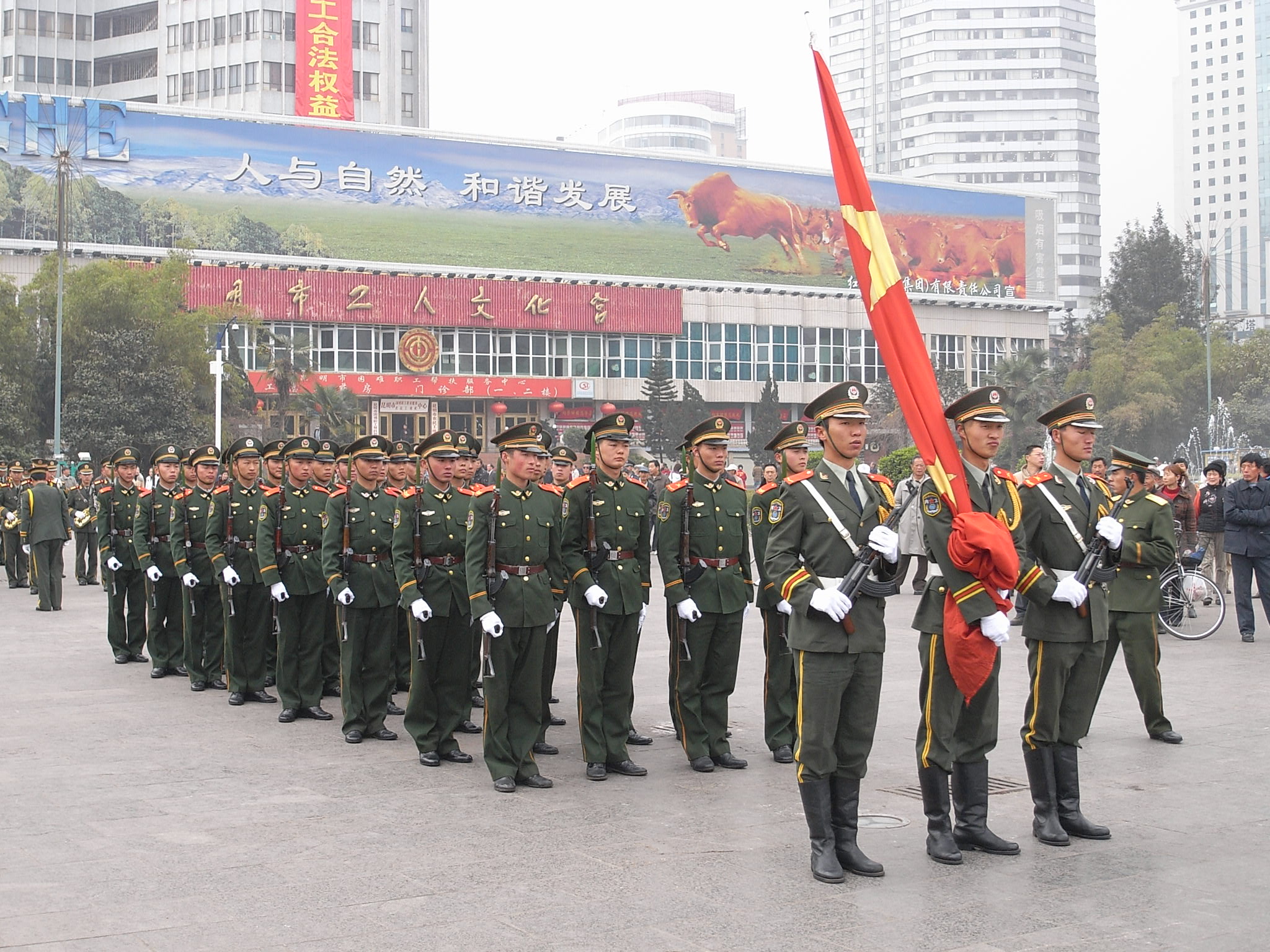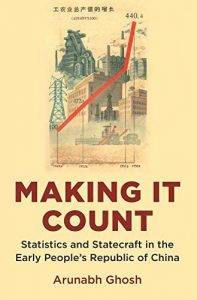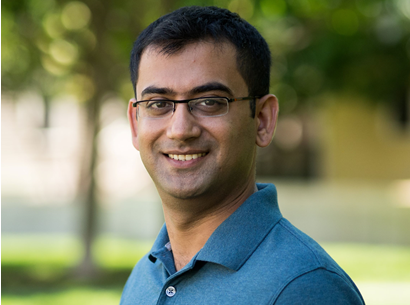
- 19 May 2021
[Book Talk] Making It Count: Statistics and Statecraft in the Early People’s Republic of China
Introduction to ‘Inter-Asia Book Talk Series’
The Arabia-Asia cluster was established with the unique and vital mission of developing an Asia-centric view of the Middle East. Eschewing the conventional area-studies framework, we explore the overlapping ideas, people, commodities and histories that inextricably tie together these seemingly distant geographies. In furthering this mission, we kickstart an ‘Inter-Asia Book Talk Series’ with authors of notable new books offering innovative, comparative and connective approaches to inter-Asian studies. Ideally, we hope that our audience attend the webinar having read the assigned text to have an in-depth discussion with the author on furthering the Arabia-Asia mission. However, we welcome everyone, regardless, to join the moderated online reading group on cutting-edge inter-Asian methodologies. It gives me great pleasure to inaugurate the series with
Dr. Arunabh Ghosh’s Making It Count: Statistics and Statecraft in the Early People’s Republic of China
Abstract
 In 1949, at the end of long periods of wars, one of the biggest challenges facing leaders of the new People’s Republic of China was how much they did not know. The government of one of the world’s largest nations was committed to fundamentally re-engineering its society and economy via socialist planning while having almost no reliable statistical data of the country. Making It Count is the history of efforts to resolve this “crisis in counting”. Drawing on a wealth of sources culled from China, India and the US, Arunabh Ghosh explores the choices made by political leaders, statisticians, academics, statistical workers and even literary figures in attempts to know the nation through numbers.
In 1949, at the end of long periods of wars, one of the biggest challenges facing leaders of the new People’s Republic of China was how much they did not know. The government of one of the world’s largest nations was committed to fundamentally re-engineering its society and economy via socialist planning while having almost no reliable statistical data of the country. Making It Count is the history of efforts to resolve this “crisis in counting”. Drawing on a wealth of sources culled from China, India and the US, Arunabh Ghosh explores the choices made by political leaders, statisticians, academics, statistical workers and even literary figures in attempts to know the nation through numbers.
Ghosh shows that early reliance on Soviet-inspired methods of exhaustive enumeration became increasingly untenable in China by the mid-1950s. Unprecedented and unexpected exchanges with Indian statisticians followed, as the Chinese sought to learn about the then-exciting new technology of random sampling. These developments were overtaken by the tumult of the Great Leap Forward (1958–1961), when probabilistic and exhaustive methods were rejected and statistics was refashioned into an ethnographic enterprise. By acknowledging Soviet and Indian influences, Ghosh not only revises existing models of Cold War science but also globalises wider developments in the history of statistics and data.
Anchored in debates about statistics and its relationship to state building, Making It Count offers fresh perspectives on China’s transition to socialism.
Reading Suggestion: Introduction, Conclusion, and Chapter 7 (“Seeking Common Ground Amidst Differences: The Turn to India”)
Note: For those having difficulty accessing the text, please contact the series convenor, Dr. Ameem Lutfi at meial@nus.edu.sg
This public talk will be conducted online via Zoom on Wednesday, 19 May 2021, from 7.30pm to 9.00pm (SGT). All are welcome to participate. This event is free, however, registration is compulsory. Successful registrants will receive a confirmation email with the Zoom details closer to the date of the event.
Image caption: A People’s Liberation Army flag raising parade in China. Photo: Michael Woodhead / Flickr
Listen to the full event here:
Watch the full event here:
Read the Summary of Event Proceedings:
By Fauzan A Roslee
Research Associate, Middle East Institute, National University of Singapore
Dr Ameem Lutfi began the inaugural session of the Inter-Asian Book Series by introducing the rationale behind the programme. As part of the Arabia-Asia cluster at the Middle East Institute (NUS), there have been ongoing discussion and criticism surrounding inter-Asian methods and the Area Studies model, such as the argument that the Middle East is a product of colonial geography. However, there has been less discussion on the alternate models to counter such arguments. As such, the Inter-Asian Book Series brings together scholars from around the world for concrete discussions about the methodology and approach to the study of Asia.
To begin the series, Associate Professor at Harvard University Dr Arunabh Ghosh discusses his book Making It Count: Statistics and Statecraft in the Early People’s Republic of China (Princeton University Press, 2020) which dives into the political, methodological and philosophical debates within a specific community of Chinese scholars and policymakers in post-war, early communist China. In the book, Dr Ghosh also paints the social world of a vibrant network of experts who were engaged in deep abstract thinking about statistical methods, while trying to manage the political demands and exigencies of the Chinese government then. What emerged out of this deep dive is a fresh insight into a basic and fundamental divide within contemporary social sciences which are the different statistical and methodological approaches that were being debated, discussed and implemented.
Prof Ghosh then began by outlining the main arguments of his book where he attempts to understand how the newly-formed Chinese state which was ideologically aligned to socialist-Marxist principles, approached the idea of setting up society and culture in a carefully planned way. Essentially, the book explores a very simple empirical question – In 1949, as the communists came to power and the People’s Republic of China (PRC) was established, how does that kind of state go about knowing the country quantitatively in order for it to make well thought-out plans?
Prof Ghosh’s book also gets into debates about the Chinese state’s capacity, state-society relations and the different kinds of socialism that manifest themselves throughout the PRC’s history, but more importantly, the book unravels the histories of planning and data. He then detailed how in December of 1956, when the Chinese Premier Zhou Enlai was on a month-long visit to India, he visited the Indian Statistical Institute (ISI), one of the leading centres for both statistical and theoretical innovation, as well as applying statistics to a whole range of social science research and social planning in India. President Zhou was fascinated by ISI’s work, particularly in large-scale random sampling which was relatively new in the 1950s in terms of the field-tested method of gaining social data at that time. Following that, a group of Chinese scientists spent over a month at the ISI in Calcutta mainly to study large-scale random sampling. As they returned to China, large-scale random sampling was adopted in China, particularly in the agricultural sector.
Prof Ghosh also sketched out the three broad approaches to ascertaining social facts in the 1950s in China:
(1) The ethnographic mode: Used extensively in the social sciences but really relies on the authority that is gained by the individual researcher being present within the phenomena that he/she is studying.
(2) The exhaustive mode: Going out and counting everything, which in simple terms is also known as exhaustive enumeration or the census method.
(3) The stochastic or randomised approaches: These say that neither the ethnographic nor the exhaustive method is ideal and hence, a randomised approach needs to be applied to get a much more accurate sense of social reality.
Additionally, during this period, there was tremendous emphasis on material production over service-based activities. This, again, has to do with the nature of the socialist economy and how they were measuring economic and social planning, an approach that did not change until the late 80s and early 90s when both the Soviet Union and the PRC switched over from the material product system of accounting for economic production to the system of national accounts – which is what the United Nations has been using – to balance both material production along with the service industry. The emphasis on material products led to a whole range of problems by the 1950s. There is a tremendous problem with incommensurate ability, whereby it is very difficult to make sense of what has actually been produced. An important way to perhaps try and solve this problem – an over-reliance on exhaustive enumeration and this particular mode of thinking about the distinction between the natural world and the social world – is to employ the ethnographic mode of collecting statistical data. The other important thing is manipulation or suppression of data, in which some data can be biased as researchers start with flawed assumptions.
Another point that Prof Ghosh highlighted was how throughout the 1950s, although there was a shared sense that data is tremendously valuable and transformative for any kind of state-making and social engineering, employing the appropriate methods for those goals can divert data spectacularly. Finally, thinking about data exchanges and integration, like what transpired between the ISI in India and the Chinese scientists, there is a lot that can be learnt from going beyond ideological divides. For instance, the ISI had drawn people from the US, Western Europe and even the Soviet Union and China who benefitted from the study of statistics and expanded their applications on large and complex scales, pioneering technological advances in the field of statistical research.
About the Speakers

Associate Professor
History Department
Harvard University.
Arunabh Ghosh (BA Haverford; PhD Columbia) is a historian of twentieth century China with interests in social, economic, and environmental history, (transnational) histories of science and statecraft and China-India history.
He is currently an Associate Professor in the History Department at Harvard University. Ghosh’s first book, Making it Count: Statistics and Statecraft in the early People’s Republic of China (Princeton University Press, 2020), offers new perspectives on China’s transition to socialism in 1949 by investigating an elemental but hardly elementary question—how did the state build capacity to know the nation through numbers?
He is currently working on two new projects: a history of (small) hydroelectric power in twentieth century China and a history of China-India scientific connections. Ghosh’s work has appeared in the Journal of Asian Studies, Osiris, BJHS Themes, EASTS, PRC History Review and other venues.




